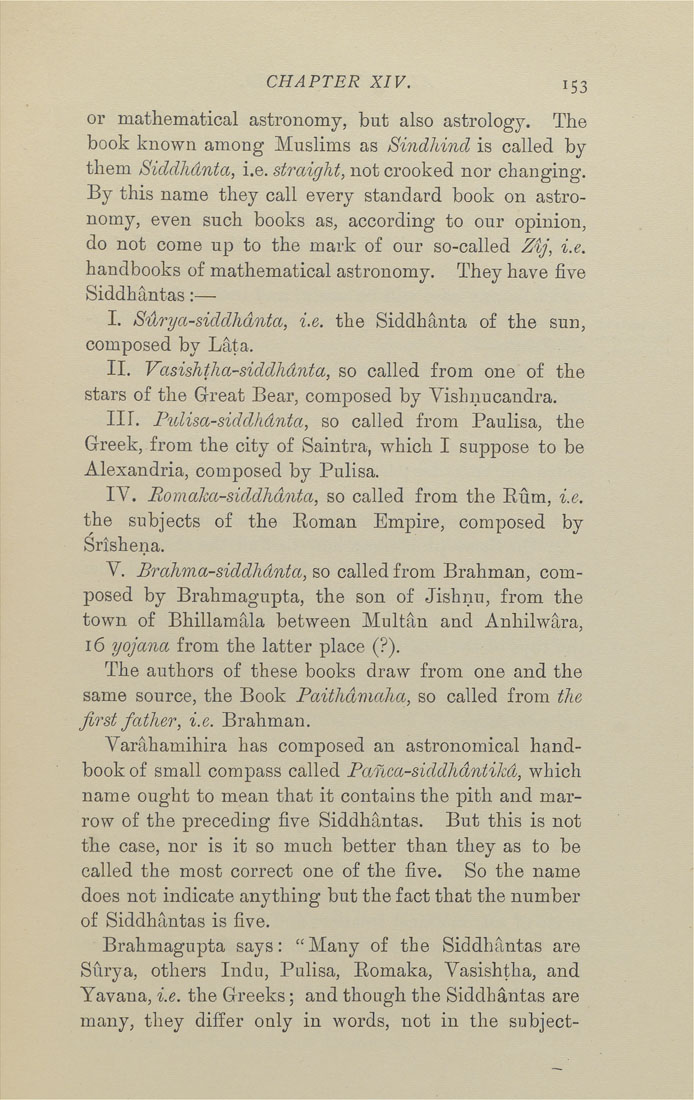CHAPTER XIV.
153
^mathematical astronomy, but also astrology. The
book known among Muslims as Sindhind is called by
them Siddhdnta, i.e. strctight, not crooked nor changing.
By this name they call every standard book on astro¬
nomy, even such books as, according to our opinion,
do not come up to the mark of our so-called Zij, i.e.
handbooks of mathematical astronomy, P'hey have five
Siddhantas:—
I. Siarya-siddhdnta, i.e. the Siddhanta of the sun,
composed by Lata.
II. Vasishtha-siddhdnta, so called from one of the
stars of the Great Bear, composed by Vishnu candra,
III. Pulisa-siddlidnta, so called from Paulisa, the
Greek, from the city of Saintra, which I suppose to be
Alexandria, composed by Pulisa.
IV. Bomaka-siddhdnta, so called from the Eiim, i.e.
the subjects of the Roman Empire, composed by
Srishena.
V. Brahmasiddhdnta, so called from Brahman, com¬
posed by Brahmagupta, the son of Jishnu, from the
town of Bhillamala between Multan and Anhilwara,
16 yojana from the latter place (?).
The authors of these books draw from one and the
same source, the Book Paithdmalia, so called from the
first father, i.e. Brahman.
Varahamihira has composed an astronomical hand¬
book of small compass called Pancasiddhdntikd, which
name ought to mean that it contains the pith and mar¬
row of the preceding five Siddhantas. But this is not
the case, nor is it so much better than they as to be
called the most correct one of the five. So the name
does not indicate anything but the fact that the number
of Siddhantas is five.
Brahmagupta says: "Many of the Siddhantas are
Surya, others Indu, Pulisa, Eomaka, Vasishtha, and
Yavana, i.e. the Greeks; and though the Siddhantas are
many, they differ only in words, not in the subject-
|








